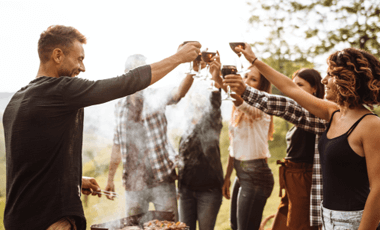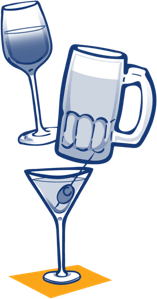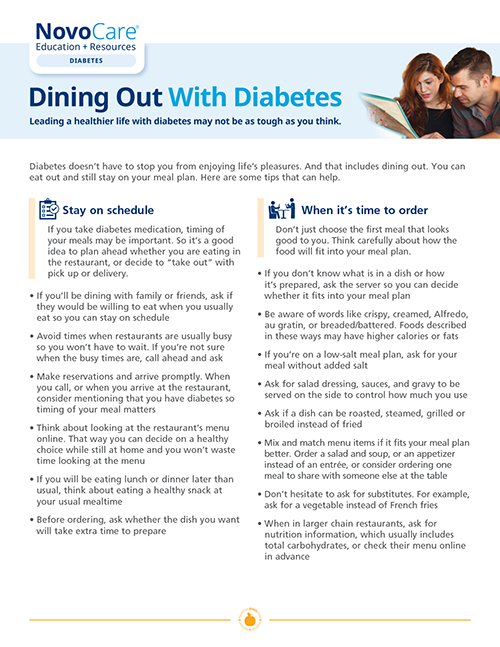
EATING
Cheers (to your health!)

Should you have that drink? Not until you read about alcohol and type 1 diabetes.
Drinking alcohol can be an enjoyable adult activity. But for someone with type 1 diabetes, alcohol can increase the risk of low blood glucose (hypoglycemia). This is especially true later at night after drinking and for up to 24 hours after drinking.
However, blood glucose may actually rise (hyperglycemia) at first after drinking alcohol. Use extra caution with alcoholic drinks that are mixed with fruit juice or regular soda, beer, or sweet wine. They can be loaded with carbohydratesCarbohydrateCarbohydrates are the main kinds of food that raise blood glucose levels. Your digestive system changes carbohydrates into glucose, and then uses this glucose as a source of energy for your cells.
There are 3 main types of carbohydrates in food: starches (complex carbohydrates), sugars (simple carbohydrates), and fiber. Fiber is the part of plant foods, including fruits, vegetables, and nuts, that you can’t digest..

- Drinking too much may make it harder to recognize and manage low blood glucose
- Alcohol can mask the symptoms of low blood glucose. People may think you have had too much to drink when you are actually suffering from severe hypoglycemia
- When you have been drinking, it can get in the way of good judgment. It may raise the chance of forgetting to take your insulinInsulinA hormone made by the beta cells in the pancreas that helps glucose move from the blood into the cells. Insulin is also an injectable medicine that is used to treat diabetes by controlling the level of glucose in the blood. or eating before you go to bed
Remember:
If you want to drink alcohol, be sure to talk to your diabetes care teamDiabetes care teamYour diabetes care team may include a primary care doctor, a diabetes and hormone doctor (endocrinologist), a registered nurse, a diabetes educator, a dietitian, a heart doctor (cardiologist), a foot doctor (podiatrist), an eye doctor (ophthalmologist/optometrist), a kidney doctor (nephrologist), a dentist, a pharmacist, and a mental health professional. first. Here are some things they may want to go over with you:
- Stay hydrated with no-calorie drinks
- Don’t count alcohol as a carb choice
- Try light beers or wine spritzers
- Use no-calorie mixers
- Don’t drive for several hours after drinking
- Don’t drink if you have low blood glucose
- Stay hydrated with no-calorie drinks
- Don’t count alcohol as a carb choice
- Try light beers or wine spritzers
- Use no-calorie mixers
- Don’t drive for several hours after drinking
- Don’t drink if you have low blood sugar
- Wear a diabetes ID bracelet
- Drink slowly
- Watch out for high-alcohol craft beers
- Don't forget to eat
- Wear a diabetes ID bracelet
- Drink slowly
- Watch out for high-alcohol craft beers
- Don't forget to eat



